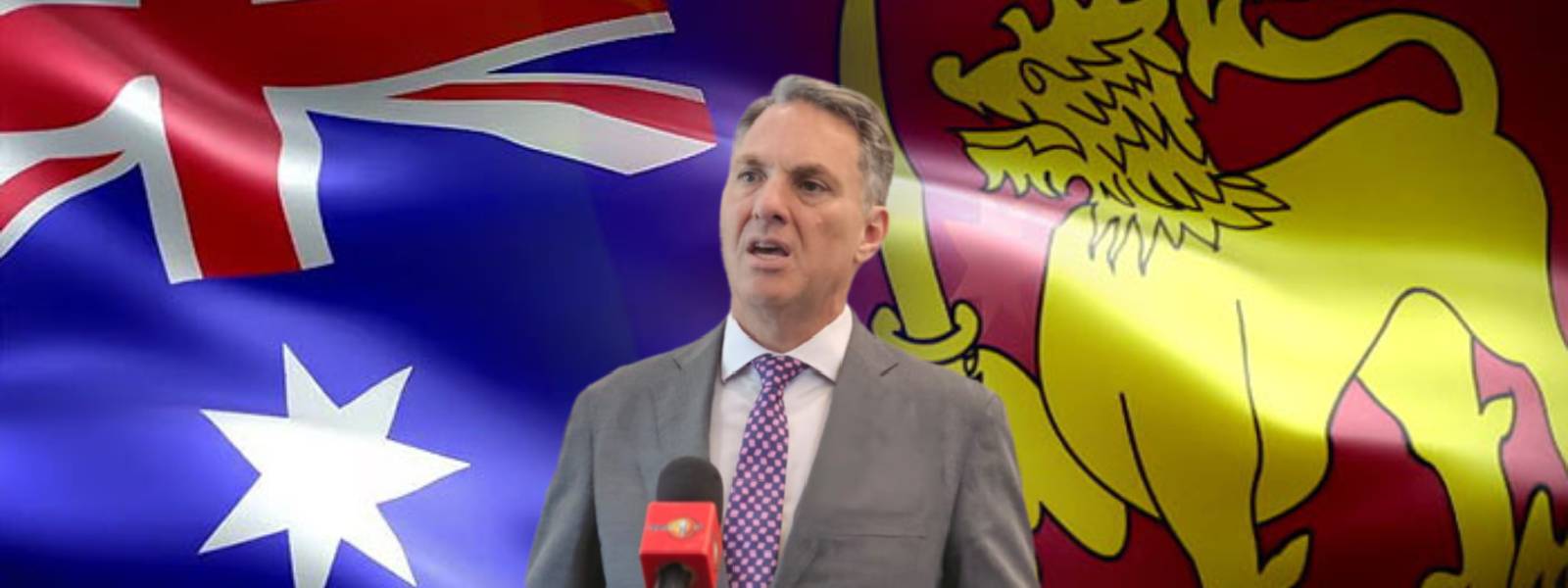.webp)

Australia Looks to Sri Lanka as Key Partner in Indian Ocean Security
COLOMBO (News 1st); The Indian Ocean, particularly its northeastern corridor, has emerged as a region of critical strategic interest for Australia, according to Deputy Prime Minister and Minister for Defence Richard Marles, who is currently on an official visit to Sri Lanka.
Speaking in Colombo, Marles emphasized that half of Australia’s trade passes through sea lanes adjacent to Sri Lanka, making maritime security and regional cooperation essential to Australia’s national prosperity and defence strategy. “Those sea lines of communication are fundamentally important to our national interest,” he said. “We increasingly see the Indian Ocean—and especially the North East Indian Ocean—as a profoundly important area of strategic interest for Australia.”
Referencing Australia’s 2022–2023 Defence Strategic Review, Marles noted that the region’s importance extends beyond India to include all Indian Ocean nations.
“It's about the other countries of the Indian Ocean. And it's about the way in which the rules-based order is asserted in the Indian Ocean. And so from that point of view, we are deeply interested in taking the next step in the relationships with the countries of this region. And Sri Lanka is obviously a country where we already have deep connections, and so it makes perfect sense to build upon that, to build that strategic dimension to the relationship. ,” he said.
Marles said his visit should be seen as an effort to elevate this already strong relationship into a strategic partnership. “We both have an interest in achieving the greatest maritime domain awareness. By cooperating, we can achieve a shared awareness that is far greater than what we could accomplish individually.”
He shared a message of unity and common purpose: “We are neighbours. We share an ocean. And in an uncertain and volatile world, it makes sense to double down with friends. It makes sense to double down with family. That’s what we’re doing—and that’s the reason for my visit today.”
Marles also highlighted the strong cultural and people-to-people ties between the two nations, describing the relationship as one that has evolved from friendship into family. “We share passions—cricket first and foremost—and we estimate that around 180,000 Sri Lankans now call Australia home,” he said. “That diaspora is a bridge that strengthens our economic and bilateral engagement.”
He pointed to growing tourism, increased direct flights, and academic collaboration as signs of deepening ties. “Something like 30 Australian universities are now directly engaging in Sri Lanka, and around 19,000 Sri Lankan students are studying in Australian higher education institutions,” he noted.
Other Articles
Featured News





.png )

-792353-793832_550x300.jpg)


-793813_550x300.jpg)
-793807_550x300.jpg)

-792874_550x300.jpg)
-792612_550x300.jpg)
-789996_550x300.jpg)
-789879_550x300.jpg)
-789357_550x300.jpg)
















.gif)